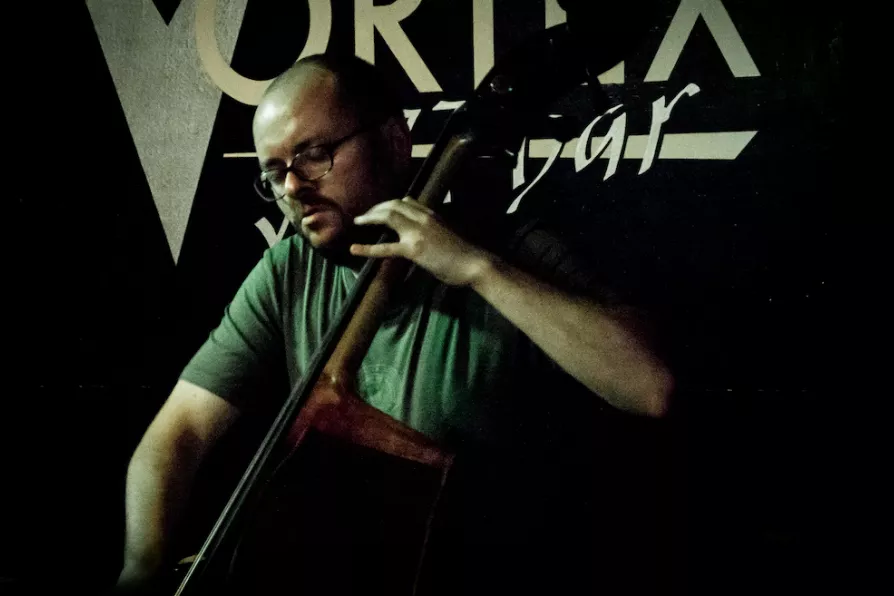MARIA DUARTE reviews Desperate Journey, Blue Moon, Pillion, and Wake Up Dead Man: A Knives Out Mystery

 Olie Brice
Olie Brice
STANDING on the chassis of a wrecked car, the expressive image on the album Somersaults shows a group of inner-city boys larking about on an urban wasteland, with one of them flying upside down in a forward roll over the graffitied bonnet.
It’s an image symptomatic of the record itself — edgy, risky, yet filled with a sublimated lyricism and audacity.
That lyricism goes back some way for bassist Olie Brice, who’s joined on the record by saxophonist Tobias Delius and drummer Mark Sanders. Born in east London, Brice spent his teenage years in Jerusalem and those years have stayed with him: “Some of my earliest musical memories are of communal singing in synagogue and around family tables,” he tells me.

CHRIS SEARLE speaks to saxophonist and retired NHS orthopaedic surgeon ART THEMEN

Chris Searle speaks to saxophonist XHOSA COLE and US tap-dancer LIBERTY STYLES












